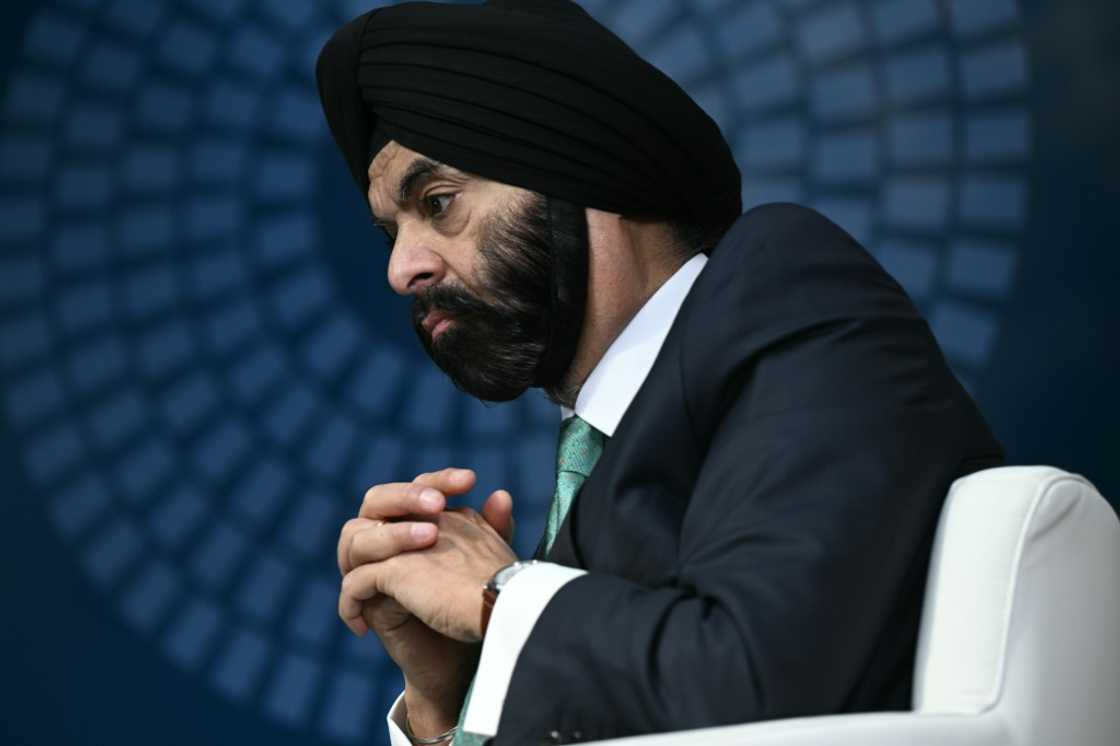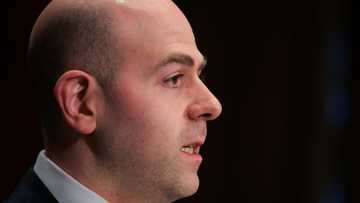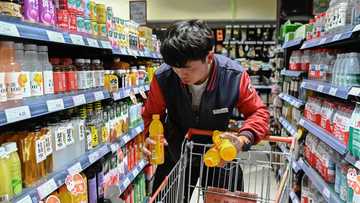Global uncertainty will 'certainly' hit growth: World Bank president

Source: AFP
CHECK OUT: How to Start Earning with Copywriting in Just 7 Days – Even if You’re a Complete Beginner
The uncertainty kicked up by Donald Trump's stop-start tariff rollout will undoubtedly hit growth, the president of the World Bank said Wednesday, ahead of next week's semi-annual meeting of global financial leaders in Washington.
"Uncertainty and volatility are undoubtedly contributing to a more cautious economic and business environment," Ajay Banga told reporters, alluding to the market turbulence unleashed by the new US administration's tariff policy.
This uncertainty would "certainly" cause slower growth than previously anticipated, he added during the virtual event.
The World Bank and International Monetary Fund's (IMF) Spring Meetings kick off on Monday, with the Bank keen to promote its agenda to drive job creation in developing and emerging market economies.
But the gathering of finance ministers and central bankers will take place against a challenging international backdrop, with US President Donald Trump's tariff policy threatening to derail economic growth in many parts of the world.
Since taking office in January, the US president has imposed 25 percent levies on several sectors including, autos, steel and aluminum, as his administration seeks to redress what it says is an unfair trading relationship with the rest of the world.
The White House also imposed a new "baseline" tariff of 10 percent on most countries, and announced higher import taxes on dozens of trading partners, only to then temporarily roll many of them back.
China -- America's third-largest trading partner -- has been hit with a barrage of new tariffs totalling 145 percent overall.
Beijing, in turn, has announced retaliatory tariffs of 125 percent on US goods.
'The right questions'
The United States is the top shareholder at the World Bank Group, and has historically been a key driver of policy at the Washington-based institution, which has been led by a US citizen for most of its history.
Shortly before leaving office, Joe Biden's administration committed the United States to $4 billion in new funding for the World Bank's agency that leverages donor funds to provide loans and grants to some of the world's poorest countries.
The Trump administration has so far refused to commit to that $4 billion figure, raising questions about how much money it plans to contribute to the World Bank and other international financial institutions such as the International Monetary Fund (IMF).
Speaking on Wednesday, Banga indicated that the Bank would make do with a smaller budget if the United States did not provide funding at the same level as before, but that he still hoped Washington would come around.
"We're having a constructive dialogue with the US administration," he said. "I don't know where it'll end, but I've got no problem with the dialogue I'm having."
"They're asking the right questions, and we're trying to give them the right answers," he added.
Nuclear, gas financing
Donald Trump has a long public record questioning the impact of man-made climate change.
Since his return to office, concerns have been raised that his administration's view on climate change could hit the World Bank, which has committed to increasing its climate finance portfolio to 45 percent of total lending.
Banga told reporters on Wednesday that, while "the words might be a problem in different people's eyes," the Bank's climate actual commitments should be less controversial.
"We are not taking away from education and schools and development to fund something," he said. "What's inside the 45 (percent) is a commitment that half of it, over time, will go to resiliency and adaptation."
Banga also suggested that the Bank could soon take another look at funding nuclear and natural gas energy projects -- something that would require approval from donor countries.
"There is no reason why a country in Africa should not care about affordable, accessible electricity," he said.
"And it includes gas, geothermal, hydroelectric, solar, wind and nuclear where it makes sense," he added.
PAY ATTENTION: Сheck out news that is picked exactly for YOU ➡️ find the “Recommended for you” block on the home page and enjoy!
Source: AFP





